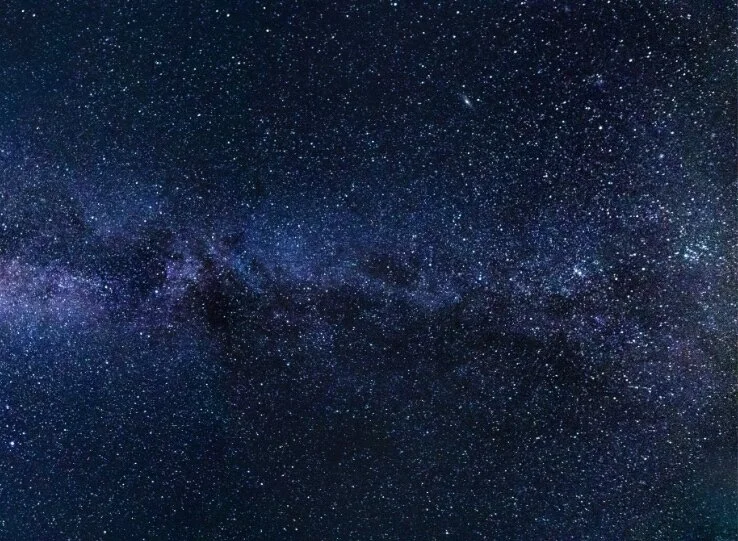"We wouldn’t worship God by sending rocks through stained glass windows" (Rev. Dan De Leon)
“See, the home of God is among mortals. He will dwell with them as their God.”
Earlier this week I discovered a new appreciation of this verse from Revelation, the last book in the Bible.
We were on a camping trip at Huntsville State Park. You couldn’t ask for more beautiful days, but the nights might’ve been a bit less cold. Still, when you emerge from your tent to see an expansive mist hovering over the lake with a majestic heron flying over it all, your obsession with temporary comforts fades back into the pointlessness from whence it came.
We hiked for miles. Soft pine needles on the trail muted our footsteps, taking our mind off ourselves, helping us breathe deeply of everything around us. Rabbits darting through the brush with the shuffle sound of leaves under their light feet. Violets kissing patches of green and brown with their bright color. Dragonflies moving, pausing long enough to seize our attention, then moving again. Turtles and alligators poking their heads above the water mere yards away. Egrets resting on the lake like an elegant dance frozen in place. And always overhead, a canopy of pine trees, through which we would glimpse the stars in a few hours.
Everywhere I looked, the words from Psalm 148 came alive: “Praise the Lord from the earth, you sea monsters and all deeps, fire and hail, snow and frost, stormy wind fulfilling his command! Mountains and all hills, fruit trees and all cedars! Wild animals and all cattle, creeping things and flying birds! Let them praise the name of the Lord.” And in hindsight, everywhere I looked I saw the home of God; the spacious sanctuary in which the Holy One will dwell with us human beings.
Back home and a couple nights’ sleep away from that camping trip, the questions placed on my heart now pester my mind: If the earth and all that is in it are not only the works of God’s hand but also the things through which God is praised, then wouldn’t harmful manipulation of the earth mute that praise, scoff at the words of the psalmist in our Holy Bible? We Christians wouldn’t worship God on a Sunday morning by sending rocks through stained glass windows, spitting our chewing gum on the sanctuary floor, and knocking over the pulpit, so why would we demean our worship outside church walls Monday through Saturday by mining, manufacturing, and appropriating everything meant for the limitless praise of God and for the sustaining and thriving of all creation?
In short, how are we doing with taking care of God’s home? If God will dwell (future tense) among mortals, and if Jesus teaches us to pray for God’s kingdom to come on earth as it is in heaven, how are our actions and our way of life making the earth a welcoming place for our Creator with which the Holy One would be well pleased?
Dumping coal into rivers, a practice that has been in effect in our country intermittently since 1983, may sustain certain lifestyles we have made in which we find convenience. At the same time it causes water to become acidic, leading to highly toxic fluids that, when mixed with groundwater, surface water, and soil, may have harmful effects on humans, animals, and plants. By contaminating the water that sustains all life, we contaminate our praise of the Creator from Whom all blessings flow.
For Dr. Norman Wirzba, Professor of Theology and Ecology at Duke Divinity School, being Christian requires an exploration of what it means to be responsible creatures in a world characterized as God’s creation. In a conference held in Fort Worth last month for clergy of all denominations, Dr. Wirzba pointed out that nothing in this world can escape human power. “No square inch on earth is free from our modern industrial economy,” he said. “We believe the world is to be made into a stockpile of quantities. But in our appropriation of things and places, we tend to not cherish the things we appropriate.” This creates a problem; a scientific, spiritual problem of mounting urgency.
It may be tempting to mine, manufacture, and appropriate everything on earth simply because we have the technological capability, but just because we can doesn’t mean we should. If we use our power indulgently instead of sustainably in our dominion over the earth, that power becomes destructively manipulative, and all creation that praises God and that nurtures every living thing, including us, is gradually depleted. Doesn’t sound like much of a home for the Holy One to make among mortals.
I would like my children to read the same Psalms when they reach adulthood that I now read and then look up to see the same beautiful creation I see when they have the opportunity to go camping. Perhaps it would inform their faith in ways that are otherwise beyond human reach. But the urgency to care for the earth isn’t just for the sake of future generations; it’s also to make this world more livable for the God we strive to worship.
So, what can we do to make the Brazos Valley a world where God would want to live forever?
###
See the original posting of this article on The Eagle.






